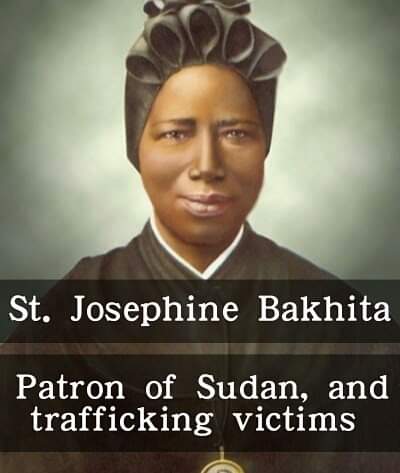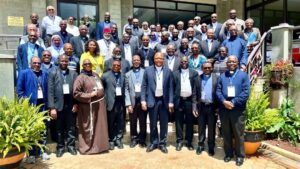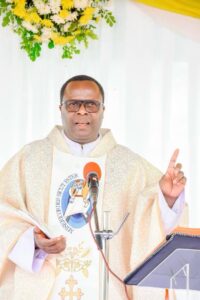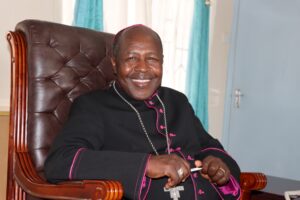SOUTH SUDAN: Celebration Of Saint Bakhita Day Brings To Light The Reality of Human Trafficking In Contemporary Africa

In South Sudan, the parish of Saints Peter and Paul in the Nuba Mountains of the Catholic Diocese of El-Obeid celebrated the feast of Saint Bakhita on Sunday 9th February 2020.
Telling the story of Saint Josephine Bakhita to the faithful’s, the Vicar General of El-Obeid, Fr. Edward Anthony Minawi, said that Saint Bakhita suffered much during the slavery era in the hands of her captives before she was sold to an Italian man who sent her to school and became a nun.
He explained that St Bakhita is a light and healer to Sudanese people and the rest of the people in the world who are suffering as a result of human trafficking.
According to a story published by Catholic Radio Network (CRN) on February 11, Fr Minawi mentioned that in the contemporary world, people are finding themselves in slavery because of economic reasons: love for money, wealth, sex and self-centered interests.
The Catholic Church worldwide celebrates the feast of Saint Bakhita on February 8 every year, which is also commemorated as the International Day for Victims of Human Trafficking with Saint Josephine Bakhita as the day’s patron saint.
Bakhita, which means “luck”, was a girl born in Sudan in 1869 but kidnapped at the age of seven and sold into slavery by Arabic traders. In 1883, she was sold to an Italian, Calisto Legani, who took her with him back to his home country, Italy. There, she was given as a nanny to a family until the family left her with the Daughters of Charity or rather Canossian Sisters in Venice.
In this free environment, Bakhita was baptized and received all the Sacraments of Initiation in 1890. In 1893, she joined the novitiate of the Congregation of Daughters of Charity upon which she took the name Josephine Margarita Fortunata.
During a workshop on promoting the plight of migrants and refugees organized by AMECEA Secretariat for National social communications Coordinators and all departments that fall under Integral Human Development which took place Kapingila House in Lusaka- Zambia this week, participants acknowledged that human trafficking remains a serious issue in the entire region, citing domestic labour issues, girls and young women who are ending up in slavery and prostitution as they migrate from rural areas to urban areas and abroad in search for employment and better economic conditions.
However, participants also recognized that there is very limited knowledge among the people about the different forms that human trafficking is taking in their countries, hence highlighting the need for the Church to carry out sensitization programs among the people.
In his message during the Angelus on February 10, Pope Francis thanked all who are fighting for the end of human trafficking and prayed for the intercession of Saint Bakhita, the patron of human trafficking victims.
“May God himself release those who have been threatened, injured or mistreated by slavery and trafficking of human beings,” Pope Francis prayed according to a report published by Catholic News Agency on February 10 adding, “We beseech you to intercede for us all so that we do not fall into indifference; so that we may open our eyes and look at the misery and wounds of so many brothers and sisters deprived of their dignity and freedom and hear their cry for help.”


